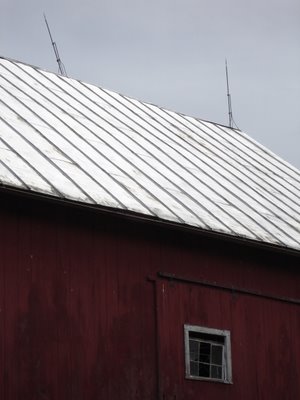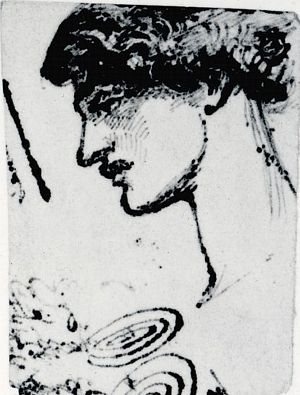I know some things about rainstorms.

They leave loudness behind them.
They whiten the very air.
Somewhere there is someone whose hands are even smaller than the rain.
One sure did a number on that poor itsy bitsy spider (and how did all of us not learn that neither narrative nor time is necessarily nonlinear, singing that circular song repeatedly in our youth?).
Afterward, the very ground can seem stunned, pounded cruelly into color, pushed to the extremity of its potential, but they make manifest the toughness of flowers (all but those ready to rain petals down on the road, or on some black bough, that is) (the flickering eyes of my students yesterday, until even I looked over my shoulder to see petals slipping in streams past the window. "I thought it was snowing," one said).
Shoes worn too long in rain that's too heavy develop a squelchiness under the foot's ball, under the big toe. Even once they're dry, these shoes may still feel raw and damp.
Today we had three, two of them dramatic. The third was the most dramatic; it washed the fine yellow film of tree pollen from my car and left the roads steaming.
From a distance, they look like the hanging frayed edges of clouds, a shaggy draining, a smudgy dragging down. Watching them approach is different from watching snowstorms approach, or approaching them yourself. Approaching a snowstorm--say, in a car, on a highway--you move into a white silence. Approaching the rain, or being approached by it, you encounter a pounding darkness.
In southern Indiana (and, to a lesser extent, in central Ohio), their summer versions often go thundersome and flashy. In my childhood Julys, I would lie silent and still in my yellow-flowered bedroom and watch the silhouetted oak trees pitch and thrash and hurtle (horizontally, circularly, impossibly) in night-storms. Lightning flashes would wake me up; the rending devastation of thunderpeals would keep me paralyzed and unable to return to sleep. I would calculate the heights of trees, the lengths they would travel if thrashed too hard, uprooted or torn or toppled. For years I was sure my death would come when tree met roof.
Last spring, a flash and crack in my backyard, twenty feet behind the house where I sat reading (heedless of those old lessons about not sitting beside windows during storms). There, a branch, hanging, the old join exposed, juicy pale tree flesh, the leaves still green, still growing. A week later, it was shriveled, dead; a year later, it still hangs.
Listen: when you see the flash, start counting: one-one thousand; two-one thousand; three-one thousand. When the thunder crashes or growls or rumbles, divide your count by five. That's how close the storm is.
This afternoon, as I turned my head to look left: a straight white slash through the eastern sky's furrowed dark grey. And the angry slapping kind of thunder, the hotly resounding exclamation, immediately. A storming right over us.
The T trip from Park Street station to Harvard Square takes enough time that a rainstorm--a quite heavy one, even--can drive in from the south and stage a surprise meeting with you at the top of the escalator.
The steam radiator in my Ithaca bedroom sounded to one person like a rainstorm, which he liked. We once sloshed through an agonizingly wet Ithaca Festival Saturday. It was anything but pleasant. I refused to read signs; my morning of reading and rain-listening while he napped, curled loosely and smelling warmly of fitful dreams, had seemed so safe, so dry.
They are best near large bodies of water, water meeting water in a fleet of bubbles and ripples and an infinity of small rat-tatting slaps.
They are also best when a field has gone so dry that a fall of water comes as a relief not just to the dusty earth and the desirous spears of cornstalks.
They are worst when unexpected, unheralded, bone-soaking, spine-chilling, relentless, falsely relenting, destructive. (When a library burns, what hurts the books most is not fire but its extinguishing.)
In nineteenth-century novels, handling a trip out in the rain poorly can kill you, or make your family seem foolish and marriage-desperate. In twentieth-century films of nineteenth-century novels, handling a trip out in the rain poorly can lead to something like quasilesbian pseudoeroticism.
They are the best excuse for doing what you most wanted to do anyway: sit quietly and cozily with a book. Then again, I might really be thinking of myself on that one.



1 Comments:
Lovely. Truly lovely.
Post a Comment
<< Home